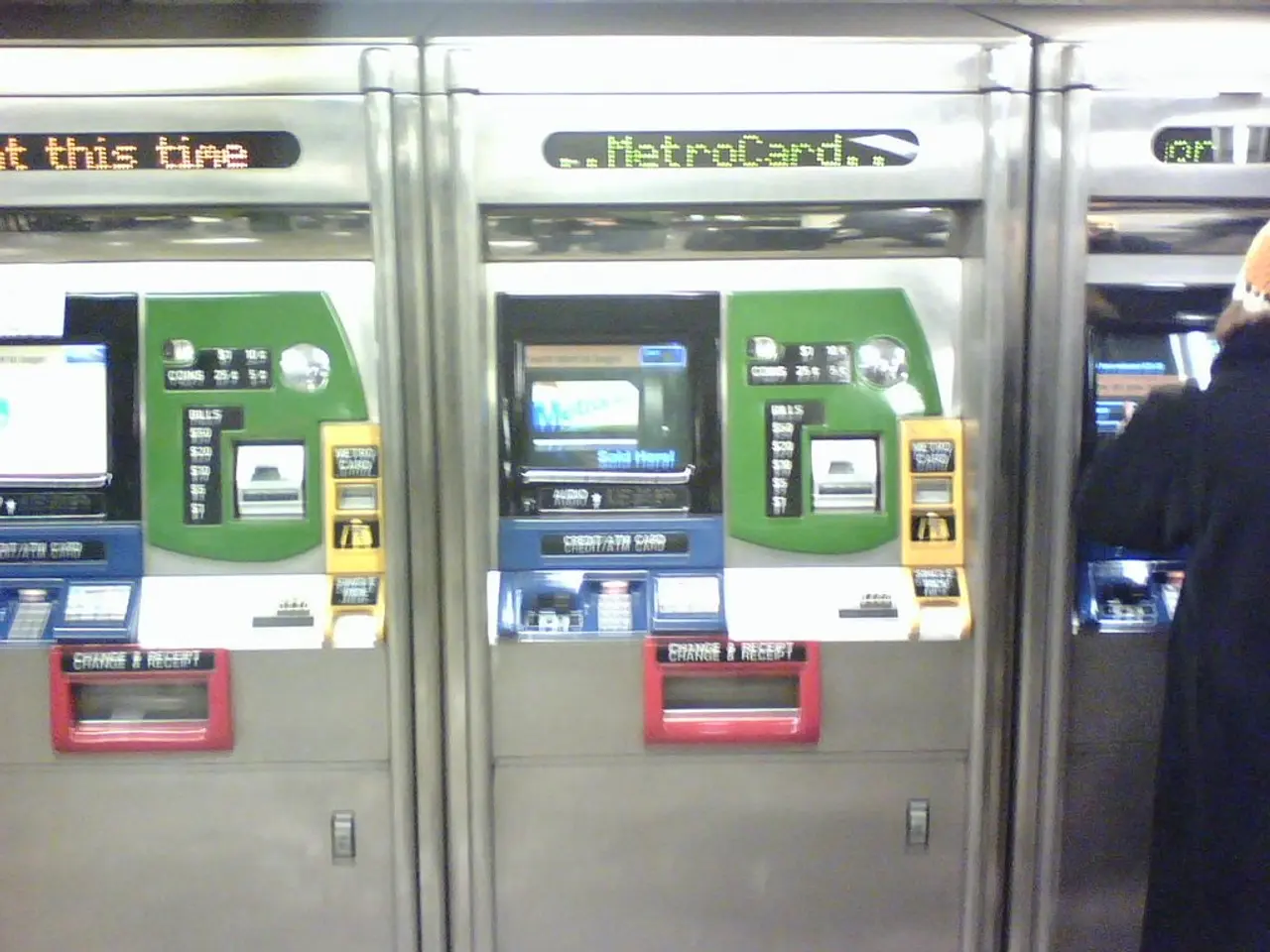Live Nation and Ticketmaster accused of selling illicitly obtained tickets for resale, prompting an FTC lawsuit
In a significant move aimed at ensuring fairness in the ticketing market, the Federal Trade Commission (FTC) and seven US states have filed a lawsuit against Live Nation Entertainment and its subsidiary, Ticketmaster. The legal action follows a series of high-profile incidents, including the row over Oasis ticket prices in the UK and the Taylor Swift Eras Tour ticketing meltdown, which led to a Senate hearing.
The lawsuit alleges that Live Nation and Ticketmaster have illegally coordinated with brokers to harvest millions of dollars worth of tickets in the primary market, a practice that violates the FTC Act's prohibition on deceptive acts or practices in the marketplace and the Better Online Ticket Sales Act.
Ticketmaster, the leading provider of tickets for concerts, controls about 80% or more of major concert venues' primary ticketing. The company, which is owned and controlled by Live Nation Worldwide, Inc., has been under scrutiny due to its dominance in the market. The domain ticketmaster.ca, registered under this company 24 years ago, serves as an indicator of Live Nation as the owner behind Ticketmaster.
The FTC claims that Ticketmaster and its parent company have deceived artists and consumers by engaging in bait-and-switch pricing. Consumers, according to the FTC, pay significantly more than the face value of the ticket due to this practice.
Despite implementing security measures, the FTC said Ticketmaster is aware that brokers routinely bypass such measures by creating thousands of Ticketmaster accounts and using proxy IP addresses to purchase event tickets. The FTC's investigation revealed that just five brokers controlled 6,345 Ticketmaster accounts and possessed 246,407 concert tickets to 2,594 events.
Moreover, the lawsuit alleges that Ticketmaster routinely exceeded the limits on the number of tickets consumers could purchase for an event. The company also has a growing share of ticket resales in the secondary market, with the FTC claiming that Ticketmaster sold millions of tickets on its resale platform, often at much higher cost to consumers, in excess of artists' ticket limits.
The allegations claim that Live Nation and Ticketmaster work with touts who buy up large volumes of tickets, selling them at a substantial mark-up in the secondary market. This practice, according to the FTC, has been detrimental to consumers who have been priced out of attending the shows they want to see.
The National Independent Talent Organisation (NITO) applauds the Federal Trade Commission's efforts to reform an unfair ticketing ecosystem. The Trump-Vance FTC is working hard to ensure that fans have a shot at buying fair-priced tickets, and today's lawsuit is a monumental step in that direction.
From 2019 to 2024, consumers spent more than $82.6 billion purchasing tickets from Ticketmaster. The lawsuit comes amid a secondary ticketing consultation in the UK with the government pledging to make it fairer for genuine fans.
Live Nation/Ticketmaster has not yet commented on the legal action. The case is expected to shed light on the inner workings of the ticketing industry and potentially lead to reforms aimed at protecting consumers.






